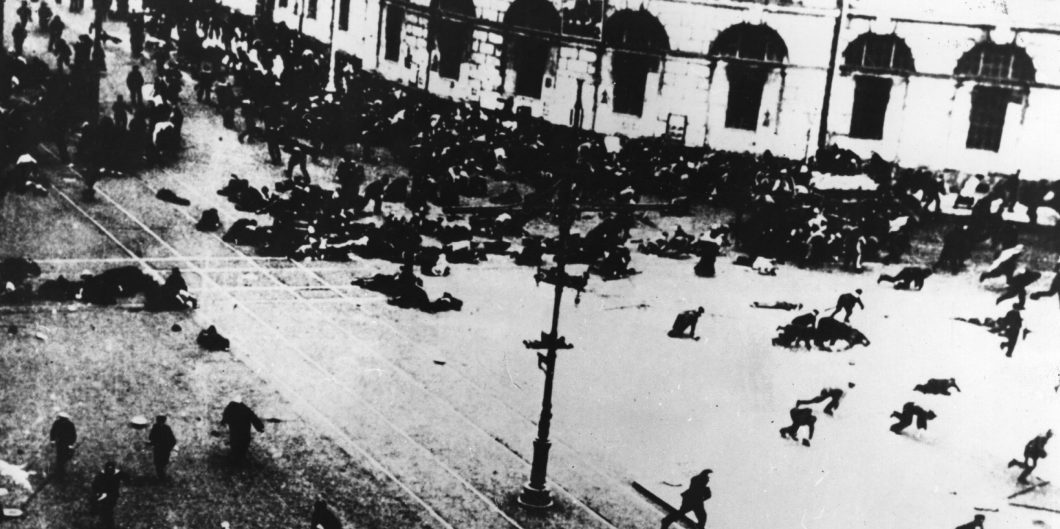The Doomed Cause of a Russian Liberal
Stephen F. Williams’ new book begs for a corps of reviewers, given its length and serious substance. Well, if not a corps, then, at least two: a scholar of Russia from 1905 to 1917, and a jurist for whom the use and abuse of the law is an abiding study. Your reviewer is retired from the first long since and cannot claim expertise regarding the second. Even when I knew more than I can remember, I had not heard of Vasily Maklakov, eminent and important as The Reformer: How One Liberal Fought to Preempt the Russian Revolution demonstrates him to be.
In a way, this is not all that strange. Maklakov’s was a lost cause among world-historical events. His chosen approach to ending absolutism was a focus on law, legitimate political institutions, and compromise (especially with reality). In his time he was well known in Petersburg, Moscow, and beyond. He was a rival of his fellow Constitutional Democrat (Kadet) Paul Miliukov, and of Aleksandr Kerensky, who represented the Trudoviks in the Duma and eventually headed the Provisional Government. Hence, close to the top but not quite there—through no fault of his own, I might add.
Vasily Alekseyevich Maklakov was born in 1869 into a well-known Russian family. In the 1890s he studied in three graduate fields: natural science, history, and the law, with the last becoming his vocation. As a trial lawyer, he began to practice in 1895. He wrote a thesis at Moscow University on the political institutions of ancient Athens. (To my mind this made him into a Aristotelian of sorts.) As could happen willy nilly with members of the Russian elite, he became close with famous men, including Leo Tolstoy, and undertook the legal defense of the Tolstoyans persecuted by the government.
Maklakov made a name for himself as a orator with, says Williams, “a profound veneration for legal form.” The high point of his legal career was the defense of Menahem Mendel Beilis, a Jew wrongfully accused of the ritual murder of an Orthodox child in 1913. Maklakov was elected to the Second State Duma in 1907 and served in that body until the October Revolution of 1917. And he had a role in all major political events in which liberals participated.
In 1915, he published an article describing Russia “as a vehicle with no brakes, driven along a narrow mountain path by a mad chauffeur.” Most make out the latter as referring to Grigory Rasputin. This is sometimes considered as the first bit of evidence of Maklakov’s involvement in the plot to assassinate the Tsarina’s strange advisor. Vladimir Purishkevich claimed that it was Maklakov who supplied Prince Felix Yusupov with the poison (apparently ineffective) used on Rasputin before he was shot and drowned. Williams notes that Maklakov denied even this. In fact, as he shows, Maklakov thought the plot ill-advised and served as an unwilling advisor to his friends, one who counseled prudence on the part Yusupov and others.
After the February Revolution of 1917, Maklakov aspired to the office of Minister of Justice in the Provisional Government. After the post went to Kerensky, Maklakov was put in charge of the government’s “legal commission.” He was heavily involved in the preparation of the elections of the Constituent Assembly. He himself was elected a member thereof.
In October 1917, Maklakov was appointed by the Provisional Government as Ambassador to France. When he arrived in Paris, he learned about the Bolshevik takeover, which effectively should have removed him from office. Nonetheless, he continued to occupy the Russian embassy in Paris for seven years, until France found it necessary to recognize the Bolshevik government. In the following years, he helped countless Russian emigres and maintained a civil respect for the new regime in Petersburg. One thing Maklakov did especially stands out: he seized the archives of the Okhrana (the Tsarist secret police), which were stored at the embassy, and arranged for their transfer to Stanford University. He died in Baden in 1957.
This book ought to be enough to make most want to know more. Williams, a federal appeals court judge and author of a 2006 book on property rights in pre-revolutionary Russia, gives them all they want. Bristling with hundreds of anecdotes, it is a delightful read for (shall we say?) appropriately interested parties (for example, retired Russian historians like me and certain sorts of neocon and libertarian jurists). More than that, it is a substantial education in the political history of Russia from the 1880s to 1917, the career of Russian liberalism in that period, and what those years have to teach us about the rule of law as a liberal value then and in our own time.
The Reformer is a political biography framed by essays at the beginning and end on the rule of law per se. Maklakov’s story is one of political moderation, coupled with an acute appreciation of the difficult concept of rule of law, and an appreciation for legitimate institutions, both Tsarist early on and those that characterized the year 1917 (until the October Revolution) under the Provisional Government and Dual Power (which is to say, the Provisional Government and the Petersburg Soviet). We read of various moderate liberal opportunities and failures, most of which Maklakov had been proximate to. Despite the relative arcaneness of the history, Williams succeeds admirably in making these things interesting, and he is not heavy-handed about the lessons regarding moderation and the rule of law that necessarily issue forth.
This is in a sense a biography of not just one man but an entire class, everyone in the intelligentsia including the reclusive Tolstoy and the whole array of government officials and 1905-1917 politicians whose names are well known. How a thinking person of privileged background weaved his way through the perils (and opportunities) of education, of Tsarist statism and capriciousness, and of political influence is, in fact, fascinating. It turns out that political exercise without dire penalty was possible for some in late Tsarist Russia and, certainly, after Nicholas II’s abdication. And, yes, it was limited to a social class.
Looking back, what Williams largely describes is a great experiment in political change, albeit with the drag of centuries of authoritarianism, weak popular political involvement in affairs and, most especially, complications wrought by the Great War. The author’s principal interest lies in the question of how autocracy (tyranny, dictatorship) can be moved to democracy and the rule of law. Maklakov’s life reflected a step-by-step approach to that project. For him, turning Tsarist institutions into democratic ones was the path of least chaos.
For Williams, the rule of law is a practice, not a dogma. The process of realizing it is organic, or, if not that, a matter of practice rather than principle. Society, as much as rulers and statist-inclined executives and legislators, must be in the position to accept helping to apply it rather than reducing it to something ideological.
Interestingly he was hardly immune to the notion that revolution can legitimize a new political regime. Revolution, for good or ill, could legitimize change in one fell swoop. The Revolution of February 27-March 3 (Old Style) refused to take this route and was not, in Maklakov’s view (and mine) a revolution at all. That, as much as anything, seemed to doom the political exercises of the eight or so months from February to October and prepare the way for the Bolsheviks.
Williams is very good at explaining why a liberal regime was unable to replace Tsarist authoritarianism after the February Revolution. The key was the absence of legitimized institutions, such as an authoritative legislature, a constitution and constitutional authority, and executive power residing legitimately somewhere. Neither the past nor the present provided legitimacy in the Russian case.
Turning to the lessons for us regarding the rule of law, Williams provides a suitably complex and learned view. He recognizes that the benefits of rule of law, like democracy, are not easy to obtain. Other parts of politics (including compromise) are essential, and, as has been indicated above, institutions with some clear relationship to political reality and fundamental law are essential. This was something that Maklakov understood well, despite the absence of such things to cherish in his time.
For Williams, the rule of law is a practice, not a dogma. The process of realizing it is organic, or, if not that, a matter of practice rather than principle. Society, as much as rulers and statist-inclined executives and legislators, must be in the position to accept helping to apply it rather than reducing it to something ideological. Needless to say, society must resist possible abuses of regulation and support leaders similarly inclined. Sometimes, however, new events are such that the law has to “Get out of the way.” For Maklakov, such getting out of the way had to do with transformational events, such as new threats and opportunities. In other words, the rule of law cannot flourish until dislocating events simmer down.
Exertions of arbitrary power will always be the death knell of the rule of law. But, of course, failure to take into account history, institutions, socio-economics, common sense, and public opinion can yield similarly dire results. Rule-of-law types have to pick their opportunities and be satisfied with partial successes, if I read correctly the moral of Maklakov’s story.


